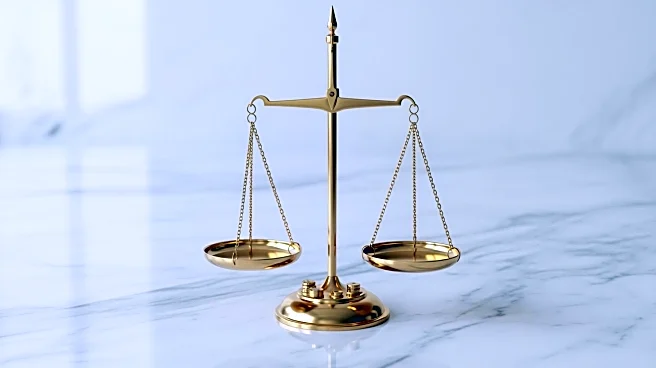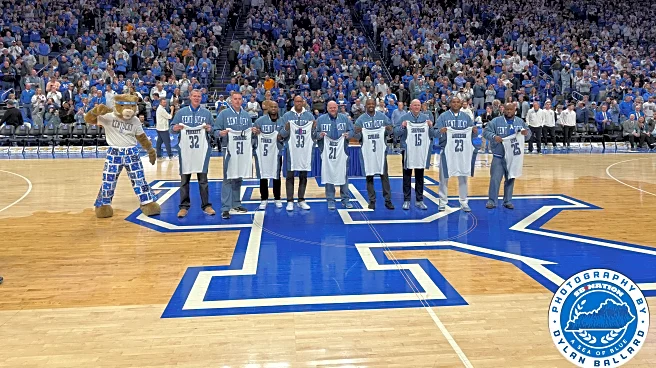What's Happening?
Kim Kardashian has addressed the negative reviews of her new Disney+ legal drama, 'All's Fair,' by humorously engaging with her audience on social media. Despite being described by critics as 'so awful, it feels almost contemptuous' and 'may be the worst
TV drama ever,' Kardashian shared screenshots of fans who decided to watch the show after reading the harsh critiques. The series, where Kardashian plays a divorce lawyer named Allura Grant, has received a 5% score from critics on Rotten Tomatoes but a more favorable 66% from audiences. Kardashian's Instagram post asked her 354 million followers if they had tuned into 'the most critically acclaimed show of the year,' highlighting the show's popularity despite the reviews.
Why It's Important?
The mixed reception of 'All's Fair' underscores the complex relationship between media criticism and audience engagement. While critics have largely panned the show, the audience's more positive reception suggests that negative reviews can sometimes pique interest rather than deter viewership. This phenomenon highlights the influence of celebrity culture and social media in shaping public perception and driving viewership, regardless of critical consensus. Kardashian's ability to leverage her massive social media following to promote the show demonstrates the power of personal branding in the entertainment industry.
What's Next?
As 'All's Fair' continues to stream on Disney+, it remains to be seen how the show will perform in terms of long-term viewership and whether it will influence future projects involving Kardashian. The show's reception may prompt discussions within the entertainment industry about the impact of celebrity-led productions and the role of social media in marketing strategies. Additionally, the show's performance could affect Kardashian's future acting opportunities and collaborations with prominent producers like Ryan Murphy.
Beyond the Headlines
The reception of 'All's Fair' raises questions about the evolving standards of television production and the role of celebrity influence in shaping content. The show's ability to attract viewers despite negative reviews may reflect broader cultural trends where entertainment value is increasingly defined by social media engagement rather than traditional critical acclaim. This shift could have long-term implications for how television shows are developed, marketed, and consumed.















